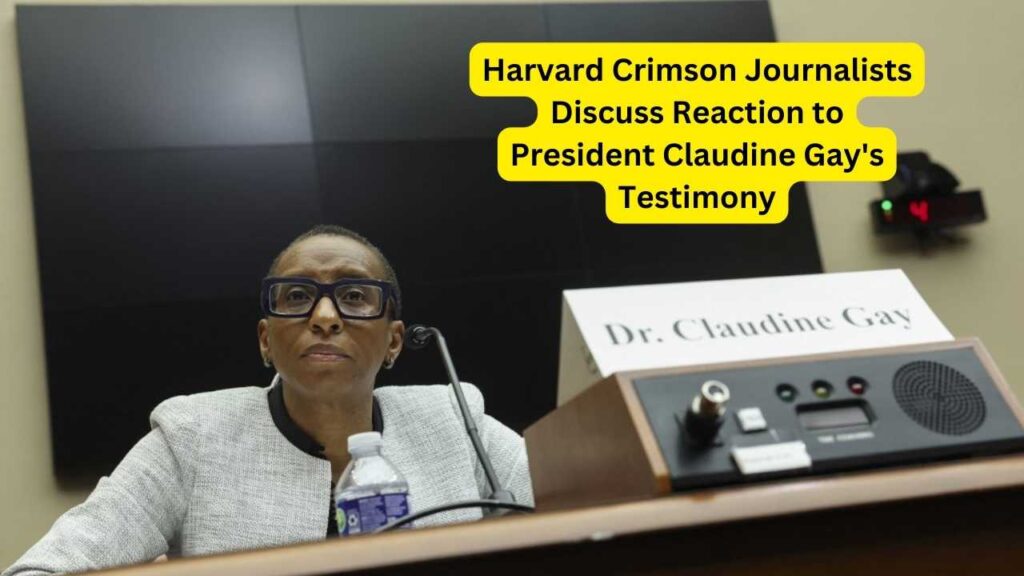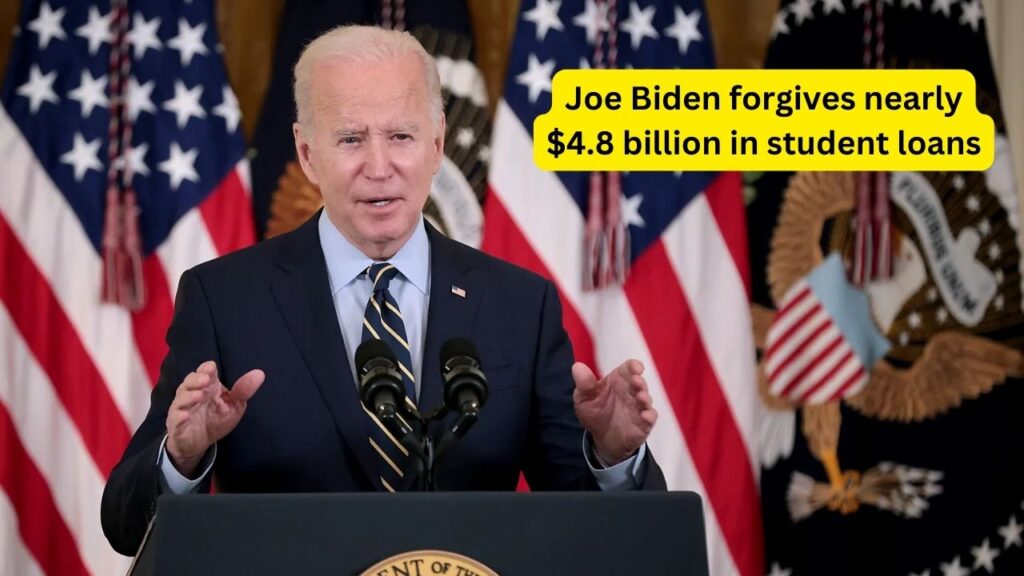Harvard University President Claudine Gay is facing increasing pressure to resign, as donors and alumni have called for her removal over her comments about anti-Semitism on campus made during a congressional hearing last week.
Meanwhile, hundreds of faculty members are showing their support for the president. A meeting of the university body that will determine Gay’s future is scheduled for today.
Harvard Crimson student journalists Claire Yuan and Miles Herzenhorn joined GBH’s Morning Edition co-hosts Paris Elsesser and Jeremy Siegel to discuss the latest developments. A minor modification has been made to this transcript.
Jeremy Siegel: A total of five hundred faculty members have signed a letter endorsing Gay, stating that the university ought to refuse to yield to wealthy patrons. Meanwhile, alumni are calling for Gay to step down. Plus, a rabbi who was on the university’s anti-Semitism task force is also resigning. Miles, where are things going ahead of this meeting of the university’s governing bodies?
Miles Herzenhorn: Good question, Jeremy. President Claudine Gay has had a really tough week, honestly. Last week, she went to Washington to try to calm the controversy over her response to anti-Semitism on campus. And that testimony made things even worse. Then, on Thursday, as the congressional investigation began, a member of the anti-Semitism advisory group she formed less than a month earlier resigned from that role. Then, as you know, the governing board meeting is happening. It’s been a really tough week, honestly. And today we’re expecting Harvard Corporation to decide whether or not to issue a statement in support of Claudine Gay. So it’s been a tough week for her, and today will really determine whether or not it’s even worse.
Paris Elsesser: Now, we should note that you were all able to get an interview with her. And in that interview, she apologized for her comments. What reaction is that getting on campus?
Claire Yuan: Yes, there are undoubtedly differing opinions. There’s a sense on campus that it’s too little, too late. The damage she did in that final exchange with Representative [Alice] Stefanik during the testimony really hurt a lot of people. And that’s something that President Gay is aware of. She’s hearing the criticism. She’s expressed that she’s sorry. For some, it’s insufficient. Others appreciate the fact that she said something to express it. There’s a sense of contrition that helps to know that she’s hearing their concerns and at least taking some kind of action, shape or form.
Siegel: There has been a lot of national coverage of this story. It’s the top story in the New York Times this morning. It was also on Friday; it was the cold open for Saturday Night Live over the weekend, and they had a lot of jokes about the testimony. Claire, with so much attention on your school right now, how are students on campus experiencing all of this, even though your school is facing the potential removal of the university president? I mean, there have been protests, and now the university president is facing potential expulsion. What is the feeling at Harvard?
Yuan: That’s a valid question, and I agree. And it’s definitely not something that we’re glossing over as journalists at the Crimson and as students in general. We’re aware that there’s a lot of national attention on Harvard right now. You know, one of our colleagues, Elias Shisgal, who actually wrote about the faculty support, is also really helping us out a lot with this coverage. The Times has quoted a few of our colleagues. You know, there is undoubtedly a greater, heightened awareness of this. I think students are also using this platform to get their message out, knowing that there are going to be protests on campus and that there are going to be things to see and hear. And on both sides, students really want to get some attention from the university so that they can get more action from the university as well as more national support, whatever their hope for more support is.
Elsesser: And we should definitely mention that this is what sparked all of this—that open letter that was signed by many student organizations, which caused a lot of controversy. It’s only been a few months since President Gay took office, Miles. I mean, as the leader of the university, how do students feel about her situation?
Herzenhorn: It’s extraordinary. President Gay’s first statement after the Israel-Hamas war, and then the controversial letter that went viral, was released on her 100th day in office. She’s brand new to this role. And at some point in their career, any university president must deal with this difficult situation.




